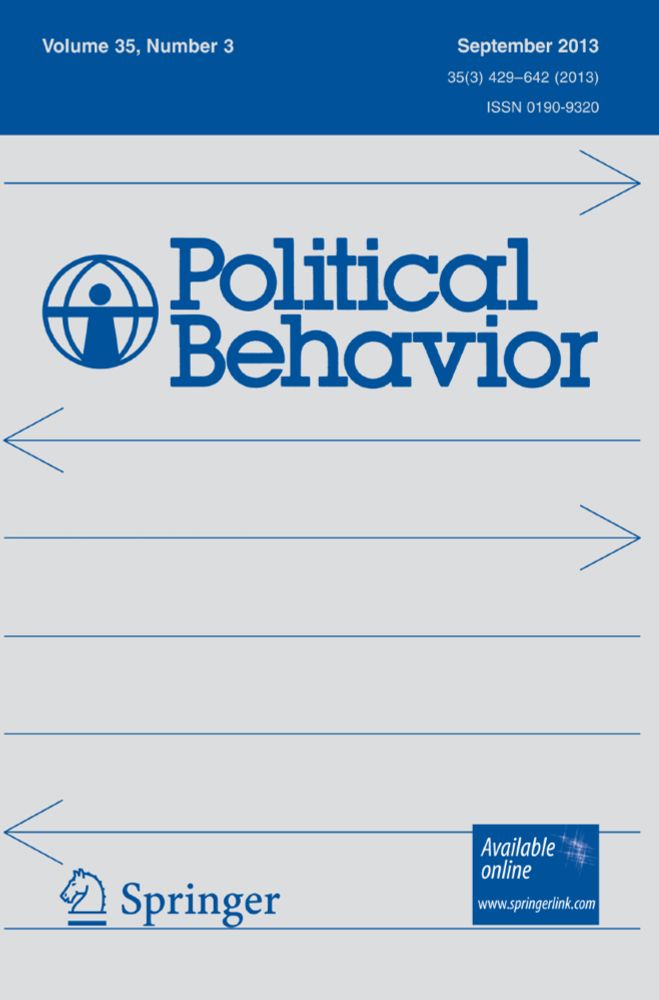Posts
Media
Videos
Starter Packs
Jennifer Wolak
@jwolak.bsky.social
· Aug 6
Jennifer Wolak
@jwolak.bsky.social
· Aug 6

The Effects of Voting by Mail on Correct Voting - Political Behavior
The share of Americans voting by mail surged in 2020. For those casting a mail-in ballot, their voting experience was different from those who voted in-person. When voting by mail, people can make the...
link.springer.com
Jennifer Wolak
@jwolak.bsky.social
· Jun 26
Reposted by Jennifer Wolak
Reposted by Jennifer Wolak
Debbie Schildkraut
@debbiejsr.bsky.social
· Oct 31
Jennifer Wolak
@jwolak.bsky.social
· Oct 15

The Politics of Progress and Privilege: How America’s Gender Gap Is Reshaping the 2024 Election
New polling by the Survey Center on American Life provides context for how gender divisions might impact the results of the 2024 Presidential election.
www.americansurveycenter.org
Jennifer Wolak
@jwolak.bsky.social
· Oct 10
Jennifer Wolak
@jwolak.bsky.social
· Oct 10

Public Support for State Challenges to National Laws - Jennifer Wolak, 2024
State governments are increasingly challenging the national government and pursuing state rules in opposition to national laws. I am interested in whether the p...
journals.sagepub.com
Reposted by Jennifer Wolak
mark brandt
@mjbsp.bsky.social
· Apr 10
Jennifer Wolak
@jwolak.bsky.social
· Apr 1
Reposted by Jennifer Wolak
Reposted by Jennifer Wolak
Justin Kirkland
@jhkirkland1.bsky.social
· Mar 19












